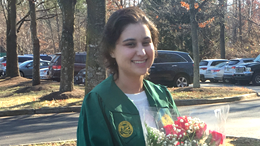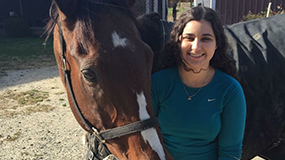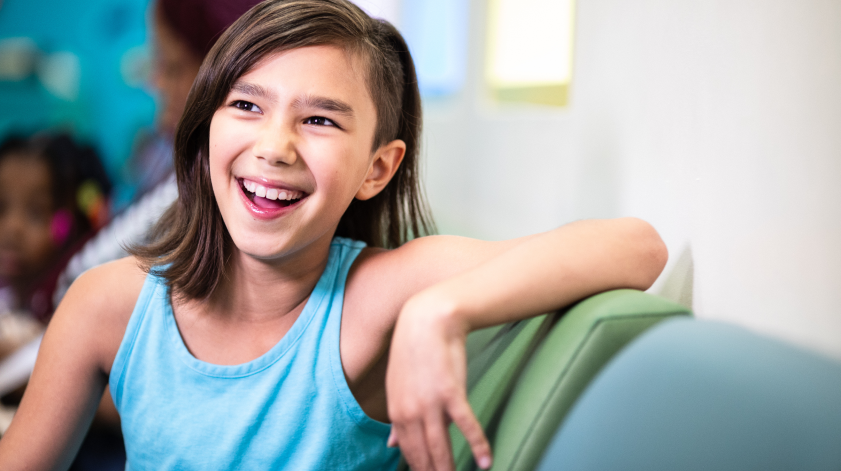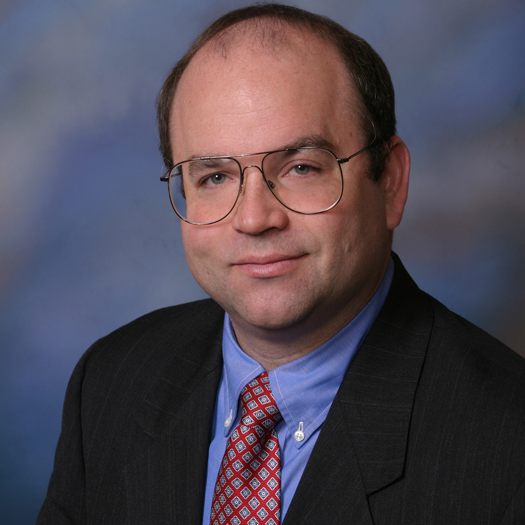
Amira's Story

In December 2006, then 11-year-old Amira Abdellaoui noticed a large bump on her left leg, specifically on her tibia, or shin bone. She was referred to Robert Henshaw, MD, director of Orthopaedic Oncology at Children’s National Health System and a leading orthopaedic surgeon. Dr. Henshaw was the physician who confirmed she had a rare bone cancer called osteosarcoma, though she had no idea how much more he would become in the years that followed.
“The tumor in Amira’s left leg was the size of a baseball and quite large and noticeable. What we didn’t expect to find though, was another completely asymptomatic tumor, about the size of a grape, in her right leg,” says Dr. Henshaw.
Amira began an intensive treatment plan where she received several rounds of chemotherapy over the next few months, and underwent two major surgeries to remove the remaining tumor tissue and reconstruct the bones in her legs so she could remain mobile and active. Dr. Henshaw used an expandable prosthetic implant to complete the reconstruction of her left leg, and for the smaller tumor site on her right leg he rebuilt the bone using portions of her own pelvis.
Amira went on to make a complete, cancer-free recovery, but shortly thereafter, to the surprise of her family and doctors, her younger brother was also diagnosed with osteosarcoma. This diagnosis led doctors to believe their situations were not a coincidence.
“Osteosarcoma is a rare cancer, so when Amira’s brother was also diagnosed we knew we had to uncover a missing piece to the puzzle,” says Dr. Henshaw.
Both Amira and her brother were ultimately diagnosed with Li-Fraumeni Syndrome, a rare, inherited genetic cancer disorder that greatly increases one’s risk of developing cancer due to a mutated gene called the p53 tumor suppressor gene. This news connected many unfortunate events from the course of Amira’s life, as her mother and several family members had previously passed away from cancer diagnoses – likely also a result of Li-Fraumeni Syndrome. Since then, Amira has been constantly monitored due to her genetic disorder, receiving scans at Children’s National every three months.
 Amira was cancer-free for the next ten years, but last year, at age 21 and while a junior in college, loss of function and excruciating pain in her right arm sent Amira back to Children’s National unexpectedly. Dr. Henshaw confirmed the news Amira and her family were hoping to avoid – she once again had osteosarcoma, and it had grown quickly. “Because ten years had elapsed since Amira was last treated for osteosarcoma, we considered this to be a newly developed tumor related to Amira’s predisposition to cancer, rather than a relapse,” says Jeffrey Dome, MD, PhD, Vice President of the Cancer and Blood Disorders Center at Children’s National, the pediatric oncologist who oversaw her chemotherapy treatment. “This had implications regarding our choice of chemotherapy regimen because the drugs that were used previously were likely to be effective again. However, we had to monitor Amira closely for potential side effects related to treatment.”
Amira was cancer-free for the next ten years, but last year, at age 21 and while a junior in college, loss of function and excruciating pain in her right arm sent Amira back to Children’s National unexpectedly. Dr. Henshaw confirmed the news Amira and her family were hoping to avoid – she once again had osteosarcoma, and it had grown quickly. “Because ten years had elapsed since Amira was last treated for osteosarcoma, we considered this to be a newly developed tumor related to Amira’s predisposition to cancer, rather than a relapse,” says Jeffrey Dome, MD, PhD, Vice President of the Cancer and Blood Disorders Center at Children’s National, the pediatric oncologist who oversaw her chemotherapy treatment. “This had implications regarding our choice of chemotherapy regimen because the drugs that were used previously were likely to be effective again. However, we had to monitor Amira closely for potential side effects related to treatment.”
Dr. Henshaw, Dr. Dome and the rest of the Children’s National multidisciplinary sarcoma team, which includes nurses, a physical therapist, and a genetic counselor, guided Amira through another round of chemotherapy and surgery to remove the cancer and reconstruct her entire arm from her shoulder to her elbow.
“Through all of the chemotherapy and very significant medical challenges, Amira kept her spirits remarkably high, and she remained focused on keeping up with her academics and pursuing her degree,” says Dr. Henshaw. “It’s amazing to watch her grow up and become such a successful young adult.”
Amira credits her team at Children’s National, especially Dr. Henshaw, with helping her achieve these goals too. Since her first trip to the hospital ten years ago, he’s become more than just a doctor, but also her confidant and champion.
“Dr. Henshaw is like a second father figure to me, and I know he truly cares about what happens to me,” says Amira. “Every time I go into surgery, he holds my hand and assures me everything will be OK.”
Now at age 22, Amira has a different perspective from most other young women her age. Despite the past decade spent in and out of the hospital, filled with uncertainty and hardships, Amira has her sights set on a bright future and doesn’t allow her diagnosis to define who she is and who she wants to be.
Today, Amira is cancer-free and a graduate of George Mason University (GMU). While at GMU, she studied anthropology, art history and psychology, and completed an internship in arts management. She graduated December 21, 2017, fulfilling a long-term goal of hers. A self-proclaimed dreamer, Amira hopes to one day become a lawyer, travel the world and rediscover her passion for horseback riding.
Amira's Care Team Departments
Care Team
This is a carousel. Use Next and Previous buttons to navigate, or jump to a slide with the slide dots.


Be the Reason a Child Smiles
Every day at Children’s National Hospital, lives are changed through compassionate care and groundbreaking discoveries. Your charitable donation helps us deliver expert treatment and hope to thousands of children and families.
Meet the patients whose stories inspire us—and see the difference your support makes.





